Related Research Articles

The rights of lesbian, gay, bisexual, transgender, and queer (LGBTQ) people in the U.S. state of Utah have significantly evolved in the 21st century. Protective laws have become increasingly enacted since 2014, despite the state's reputation as socially conservative and highly religious. Utah's anti-sodomy law was invalidated in 2003 by Lawrence v. Texas, and fully repealed by the state legislature in 2019. Same-sex marriage has been legal since the state's ban was ruled unconstitutional by federal courts in 2014. In addition, statewide anti-discrimination laws now cover sexual orientation and gender identity in employment and housing, and the use of conversion therapy on minors is prohibited. In spite of this, there are still a few differences between the treatment of LGBTQ people and the rest of the population, and the rights of transgender youth are restricted.
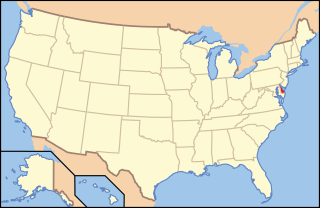
Lesbian, gay, bisexual, transgender, and queer (LGBTQ) people in the U.S. state of Delaware enjoy the same legal protections as non-LGBTQ people. Same-sex sexual activity has been legal in Delaware since January 1, 1973. On January 1, 2012, civil unions became available to same-sex couples, granting them the "rights, benefits, protections, and responsibilities" of married persons. Delaware legalized same-sex marriage on July 1, 2013.

The state of Washington is seen as one of the most progressive states in the U.S. in regard to lesbian, gay, bisexual, transgender and queer (LGBTQ) rights; with jurisprudence having evolved significantly since the late 20th century. Same-sex sexual activity was legalized in 1976. LGBTQ people are fully protected from discrimination in the areas of employment, housing and public accommodations; the state enacting comprehensive anti-discrimination legislation regarding sexual orientation and gender identity in 2006. Same-sex marriage has been legal since 2012, and same-sex couples are allowed to adopt. Conversion therapy on minors has also been illegal since 2018.
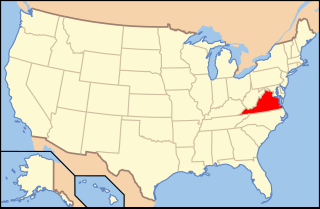
Lesbian, gay, bisexual, transgender, and queer (LGBTQ) people in the U.S. state of Virginia enjoy the same rights as non-LGBTQ people. LGBT rights in the state are a relatively recent occurrence; with most improvements in LGBT rights occurring in the 2000s and 2010s. Same-sex marriage has been legal in Virginia since October 6, 2014, when the U.S. Supreme Court refused to consider an appeal in the case of Bostic v. Rainey. Effective July 1, 2020, there is a state-wide law protecting LGBT persons from discrimination in employment, housing, public accommodations, and credit. The state's hate crime laws also now explicitly include both sexual orientation and gender identity.
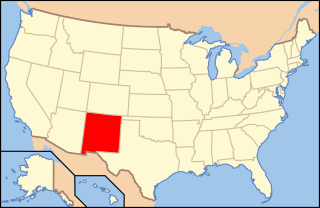
Lesbian, gay, bisexual, transgender, and queer (LGBTQ) people in the U.S. state of New Mexico enjoy the same rights as non-LGBTQ people. New Mexico has seen prominent advances in gay and lesbian rights in recent decades. Same-sex sexual activity has been legal since 1975. Same-sex marriage is legal statewide in New Mexico, as is adoption and access to fertility treatments for lesbian couples. Same-sex couples have had the same rights as heterosexual married couples since 2013. Discrimination on the basis of sexual orientation and gender identity is banned statewide in the areas of employment, housing and public accommodations. Additionally, conversion therapy on minors is prohibited in the state.
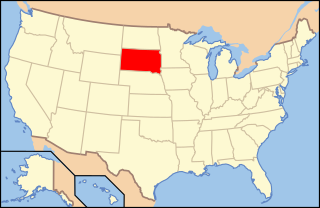
Lesbian, gay, bisexual, transgender, and queer (LGBTQ) people in the U.S. state of South Dakota may face some legal challenges not experienced by non-LGBTQ residents. Same-sex sexual activity is legal in South Dakota, and same-sex marriages have been recognized since June 2015 as a result of Obergefell v. Hodges. State statutes do not address discrimination on account of sexual orientation or gender identity; however, the U.S. Supreme Court's ruling in Bostock v. Clayton County established that employment discrimination against LGBTQ people is illegal under federal law.

Lesbian, gay, bisexual, transgender, and queer (LGBTQ) people in the U.S. state of Kentucky still face some legal challenges not experienced by other people. Same-sex sexual activity in Kentucky has been legally permitted since 1992, although the state legislature has not repealed its sodomy statute for same-sex couples. Same-sex marriage is legal in Kentucky under the U.S. Supreme Court ruling in Obergefell v. Hodges. The decision, which struck down Kentucky's statutory and constitutional bans on same-sex marriages and all other same-sex marriage bans elsewhere in the country, was handed down on June 26, 2015.

Lesbian, gay, bisexual, transgender, and queer (LGBTQ) people in the U.S. state of Mississippi face legal challenges and discrimination not experienced by non-LGBTQ residents. LGBT rights in Mississippi are limited in comparison to other states. Same-sex sexual activity is legal in Mississippi as a result of the U.S. Supreme Court decision in Lawrence v. Texas. Same-sex marriage has been recognized since June 2015 in accordance with the Supreme Court's decision in Obergefell v. Hodges. State statutes do not address discrimination on the basis of sexual orientation and gender identity; however, the U.S. Supreme Court's ruling in Bostock v. Clayton County established that employment discrimination against LGBTQ people is illegal under federal law. The state capital Jackson and a number of other cities provide protections in housing and public accommodations as well.
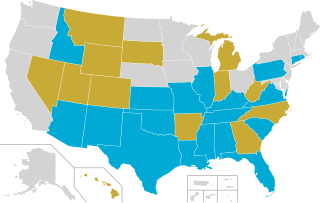
State Religious Freedom Restoration Acts are state laws based on the Religious Freedom Restoration Act (RFRA), a federal law that was passed almost unanimously by the U.S. Congress in 1993 and signed into law by President Bill Clinton. The laws mandate that religious liberty of individuals can only be limited by the "least restrictive means of furthering a compelling government interest". Originally, the federal law was intended to apply to federal, state, and local governments. In 1997, the U.S. Supreme Court in City of Boerne v. Flores held that the Religious Freedom Restoration Act only applies to the federal government but not states and other local municipalities within them. As a result, 21 states have passed their own RFRAs that apply to their individual state and local governments.
Arizona SB 1062 was an Arizona bill to amend an existing law to give any individual or legal entity an exemption from any state law if it substantially burdened their exercise of religion, including Arizona law requiring public accommodation.
The state of North Dakota has improved in its treatment of lesbian, gay, bisexual and transgender residents in the late 1990s and into the 21st Century, when the LGBT community began to openly establish events, organizations and outlets for fellow LGBT residents and allies, and increase in political and community awareness.

Mississippi House Bill 1523, also called the Religious Liberty Accommodations Act or Protecting Freedom of Conscience from Government Discrimination Act, is 2016 state legislation passed in direct response to federal rulings in support of same-sex marriage. MS H.B. 1523 provides protections for persons, religious organizations, and private associations who choose to provide or withhold services discriminatorily in accordance to the three "deeply held religious beliefs or moral convictions" which are specifically outlined in the bill. These protected beliefs are 1) that marriage is and should be an exclusively heterosexual union, 2) sex should not occur outside of marriage, and 3) that biologically-assigned sex is objective and immutably linked to gender.
The Mississippi Religious Freedom Restoration Act is a 2014 act that states that "government should not substantially burden religious exercise without compelling justification. The act protects religious people from legal repercussions if they verbally condemn the lifestyle or actions of LGBTQ persons. Additionally, the bill expands the definition of an individual to include businesses, and so if a business owner thinks their religious beliefs would be violated by delivering service to an LGBT person, the Act allows them to deny them service, a move that some commentators have called "anti-gay segregation".
The Mississippi Student Religious Liberties Act of 2013 is a 2013 act which protects the views of students in any educational institution from being reprimanded for their religious views. Under the bill, a school may not discipline a student for expressing anti-LGBT views either verbally or through written assignments.
Senate Bill 175 is a 2016 Kansas legislative proposal that would prohibit public universities to "deny a religious student association any benefit available to any other student association" based on those organizations' "sincerely held religious beliefs" This bill is intended to protect student organizations who restrict membership in regards to LGBT students, which critics argue is discriminatory.
Senate Bill 2, officially called An act to allow magistrates, assistant registers of deeds, and deputy registers of deeds to recuse themselves from performing duties related to marriage ceremonies due to sincerely held religious objection., is a 2015 North Carolina anti-LGBT law that allows for an exemption for state magistrates, assistant register of deeds, or deputy register of deeds who object to participating to issuing marriage licenses for marriages they object to "based upon any sincerely held religious objection."
Senate Bill 297 is a 2015 Utah anti-LGBT act that allows for an exemption for individuals, religious officials, religious organizations, and government officers and employees who object to participating to issuing marriage licenses for marriages they object to based on "deeply held beliefs about marriage, family, and sexuality."
A bathroom bill is the common name for legislation or a statute that denies access to public toilets by gender or transgender identity. Bathroom bills affect access to sex-segregated public facilities for an individual based on a determination of their sex as defined in some specific way, such as their sex as assigned at birth, their sex as listed on their birth certificate, or the sex that corresponds to their gender identity. A bathroom bill can either be inclusive or exclusive of transgender individuals, depending on the aforementioned definition of their sex.
Child Placing Agency Inclusion Act is a 2017 anti-LGBT law that was enacted in the U.S. state of Alabama that permits taxpayer-funded adoption agencies to deny services on the basis of religious exemptions.
Senate Bill 1556, officially called An act to amend Tennessee Code Annotated, Title 4; Title 49 and Title 63, relative to conscientious objections to the provision of counseling and therapy, is a 2016 anti-LGBT law in the state of Tennessee that allows licensed counselors in private practice to terminate care or refer away clients because of moral objections to how the client identifies.
References
- ↑ "South Dakota Becomes First State This Year to Enact Anti-LGBT Legislation". American Civil Liberties Union. Retrieved 2024-08-24.
- ↑ "Loading..." South Dakota Legislature. Retrieved 2024-08-24.